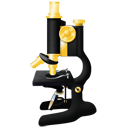BSD
| Licenses | |||||||
|---|---|---|---|---|---|---|---|
| Overview | |||||||
| |||||||
| |||||||
BSD licenses are a family of permissive free software licenses, imposing minimal restrictions on the redistribution of covered software. This is in contrast to copyleft licenses like the GPL, which have reciprocity share-alike requirements. The original BSD license was used for its namesake, the Berkeley Software Distribution (BSD), a Unix-like operating system. The original version has since been revised and its descendants are more properly termed modified BSD licenses.
See the Wikipedia article on BSD licenses for more information.
Simplified BSD License
The Simplified BSD (or BSD 2-clause) license is the simplest BSD license. A licensee of BSD-licensed software can:
- Use, copy and distribute the unmodified source or binary forms of the licensed program
- Use, copy and distribute modified source or binary forms of the licensed program, provided that all distributed copies are accompanied by the license
The BSD-2 license text can be found at:
http://choosealicense.com/licenses/bsd-2-clause/
See also
Modified BSD License
The Modified or New BSD (or BSD 3-clause) license is the same as BSD-2, but with an additional clause prohibiting the names of the authors from being used to endorse or promote products relating to the software.
The BSD-3 license text can be found at:
http://choosealicense.com/licenses/bsd-3-clause/
